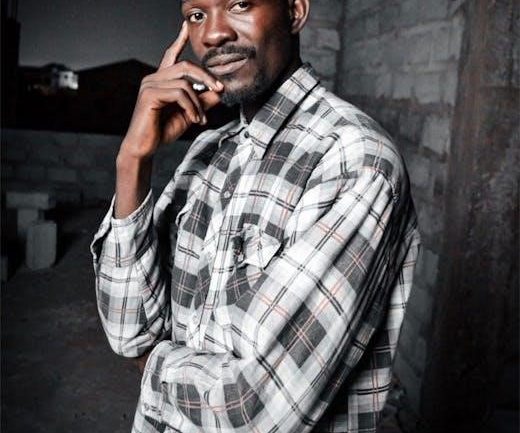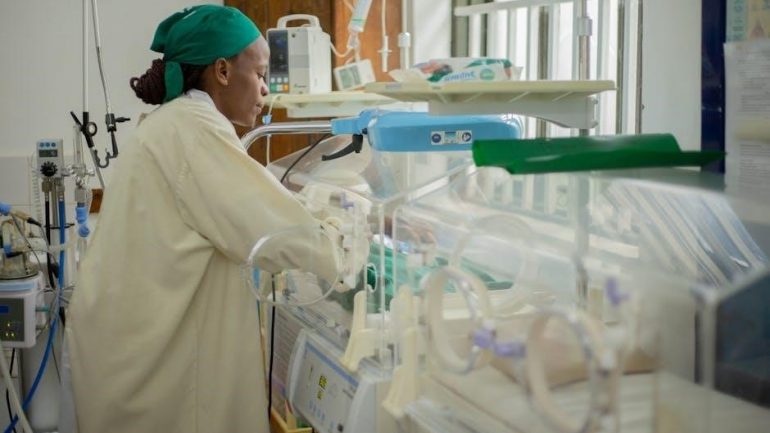The book is widely available in PDF format, enabling easy access for readers worldwide․ Its digital version has sparked discussions on piracy and copyright issues, while also highlighting the role of online platforms in sharing this impactful story․
1․1․ Overview of the Book and Its Significance
The Immortal Life of Henrietta Lacks by Rebecca Skloot is a compelling narrative that intertwines science, humanity, and ethics․ It tells the story of Henrietta Lacks, a poor African-American woman whose cancer cells, taken without her consent, led to groundbreaking medical advancements․ The book explores themes of race, class, and bioethics, while highlighting the intersection of scientific progress and personal sacrifice․ Its significance lies in its ability to spark critical conversations about medical ethics and the rights of research participants․
The PDF version of the book has made it accessible to a global audience, fostering widespread discussion and education․ It remains a vital resource for understanding the ethical dilemmas surrounding Henrietta Lacks’ legacy and the broader implications of medical research․
1․2; Author Rebecca Skloot and Her Contribution
Rebecca Skloot, a science writer and journalist, brings a unique voice to the story of Henrietta Lacks through her meticulous research and storytelling․ Her book, The Immortal Life of Henrietta Lacks, is a masterful blend of science, history, and biography, shedding light on the ethical complexities of medical research․ Skloot’s dedication to uncovering Henrietta’s story and her family’s experiences has made her a key figure in raising awareness about bioethics and patient rights․ The PDF version of her work has further amplified its reach, ensuring that her contributions to this vital conversation are widely accessible․
1․3․ The Impact of Henrietta Lacks’ Story on Medical Ethics
The story of Henrietta Lacks has profoundly shaped medical ethics, highlighting issues of consent and patient rights․ Her cells, taken without her knowledge, led to groundbreaking scientific advancements but also raised questions about the exploitation of marginalized communities․ The case has prompted significant changes in how medical research is conducted, emphasizing the importance of informed consent and transparency․ The PDF version of Skloot’s book has further disseminated these ethical discussions, ensuring a broader audience engages with the implications of Henrietta’s legacy․
The Life and Legacy of Henrietta Lacks
Henrietta Lacks, born in 1920, was a African-American woman whose cervical cancer cells became the HeLa line, revolutionizing medicine․ Her life, marked by poverty and resilience, intersected with a pivotal moment in medical history when her cells were taken without consent during treatment․ The PDF version of Skloot’s book delves into her early life, diagnosis, and the enduring impact of her cells on science and ethics, ensuring her legacy endures․
2․1․ Early Life and Background of Henrietta Lacks
Henrietta Lacks was born in 1920 in Roanoke, Virginia, to a poor African-American family․ She grew up in a tobacco-farming community, facing racial and economic challenges․ At 14, she married David “Day” Lacks and had five children․ Her life was marked by hardship, yet she remained resilient․ The PDF version of Skloot’s book vividly portrays her upbringing, marriage, and the societal context that shaped her experiences․ These early years laid the foundation for her story, which would later intersect with medical history in unexpected ways․ Her legacy began long before her cells became immortal․
2․2․ The Discovery of Henrietta Lacks’ Cancer Cells
In 1951, Henrietta Lacks was diagnosed with aggressive cervical cancer at Johns Hopkins Hospital․ During her treatment, Dr․ George Gey collected tissue samples from her tumor without her knowledge․ These cells, later named HeLa, were uniquely resilient and capable of infinite division․ Their discovery revolutionized medical research, enabling breakthroughs in cancer treatment, vaccines, and genetics․ The PDF version of Skloot’s book details how this moment marked the beginning of Henrietta’s unintended yet profound impact on science, raising ethical questions about patient consent and the use of biological materials․

2․3․ The HeLa Cells and Their Scientific Importance
The HeLa cells, derived from Henrietta Lacks’ cancer tissue, are immortal, multiplying endlessly in labs․ They’ve been instrumental in developing the polio vaccine, cancer treatments, and genetic research․ The PDF version of Skloot’s book highlights their role in advancing medical science, making them a cornerstone of modern research․ Their unique properties have led to countless discoveries, solidifying Henrietta’s legacy as a silent contributor to global health advancements, despite the ethical concerns surrounding their original collection․

The Ethical Dilemmas in the Story
The story raises profound ethical questions about informed consent and the exploitation of marginalized communities․ Henrietta’s cells were taken without her knowledge, sparking debates on medical ethics and racial disparities in healthcare․ The PDF version of the book highlights these issues, emphasizing the need for transparency and justice in scientific research․
3․1․ The Lack of Consent in Medical Research
The story of Henrietta Lacks underscores the lack of consent in medical research, as her cells were taken without her knowledge or permission․ This ethical violation highlights systemic injustices faced by marginalized communities in healthcare․ The PDF version of the book details how such practices were commonplace in the 1950s, with patients often unaware of how their bodies were being used․ This case sparked crucial discussions on informed consent and the need for transparency in medical research, emphasizing the importance of respecting patient autonomy and addressing racial disparities in healthcare․
3․2․ Racial and Class Disparities in Medical Treatment
The story of Henrietta Lacks reveals deep racial and class disparities in medical treatment during the 1950s․ As a poor African-American woman, Henrietta received care in the underfunded “colored ward” of Johns Hopkins Hospital․ Her socioeconomic status and race contributed to the lack of respect for her autonomy, as her cells were taken without consent․ The PDF version of the book highlights how such disparities were systemic, with marginalized communities often exploited in medical research․ This case underscores the historical mistreatment of African Americans in healthcare and the need for equitable reforms․
3․3․ The Intersection of Science and Ethics
The story of Henrietta Lacks raises profound ethical concerns about the balance between scientific progress and patient rights․ Her cells, taken without consent, became a cornerstone of medical research, leading to groundbreaking discoveries․ However, the lack of transparency and respect for her autonomy highlight systemic ethical failures․ The PDF version of the book emphasizes how Henrietta’s case challenges the scientific community to prioritize informed consent and respect for individuals, especially marginalized groups․ This intersection of science and ethics remains a critical issue in modern medicine․
The Role of Henrietta Lacks in Medical Advancements
Henrietta Lacks’ HeLa cells revolutionized medicine, aiding in cancer research, polio vaccine development, and genetic studies․ Her legacy underscores the ethical complexities of scientific progress․
4․1․ Contributions to Cancer Research
The HeLa cells from Henrietta Lacks have been instrumental in cancer research, enabling scientists to study cancer behavior, test treatments, and develop life-saving therapies․ These cells were pivotal in understanding cancer biology, leading to breakthroughs in chemotherapy and personalized medicine․ They also facilitated research into cancer-causing viruses and genetic mutations․ The immortal nature of HeLa cells allowed for unprecedented experimentation, accelerating progress in oncology․ Henrietta Lacks’ unintended contribution remains a cornerstone of cancer research, highlighting the ethical complexities of medical advancement and the profound impact of her legacy․
4․2․ The Development of Polio Vaccine
The HeLa cells played a crucial role in the development of the polio vaccine․ Scientists used these cells to test and refine the vaccine, ensuring its safety and efficacy․ The ability to grow poliovirus in HeLa cells allowed for mass production of the vaccine, leading to widespread immunization․ This breakthrough significantly reduced polio cases worldwide․ Henrietta Lacks’ cells indirectly saved millions of lives, showcasing their immense value in combating infectious diseases․ Her legacy extends beyond cancer research, highlighting the broad impact of her immortal cells on public health․
4․3․ Advances in Genetic Research and Biotechnology
The HeLa cells have been instrumental in advancing genetic research and biotechnology․ Scientists used these cells to map human genes, study gene expression, and explore the effects of radiation and toxins․ They also played a key role in developing cloning and gene-editing technologies, such as CRISPR․ The immortality of HeLa cells allowed for unprecedented experimentation, leading to breakthroughs in understanding human biology․ Their contributions continue to drive innovation in genetic research, making Henrietta Lacks’ legacy central to modern biotechnology and its endless possibilities for medical advancement․
The Family’s Struggle and Awareness
The Lacks family faced emotional turmoil upon discovering Henrietta’s cells were used without consent․ Their journey from unawareness to advocacy highlights the human cost of scientific progress and the fight for recognition of Henrietta’s legacy․
5․1․ The Lacks Family’s Unawareness of Henrietta’s Legacy
The Lacks family remained unaware of Henrietta’s immense scientific impact for decades․ Her cells, known as HeLa, were taken without consent, leading to groundbreaking research․ The family only discovered the truth when Rebecca Skloot began investigating, revealing the emotional and ethical complexities surrounding Henrietta’s legacy․ This lack of knowledge highlights systemic disparities in medical transparency and patient rights, underscoring the ethical dilemmas faced by marginalized communities․ The family’s journey from ignorance to awareness became a pivotal part of their story, sparking conversations about justice and recognition․
5․2․ Deborah Lacks’ Fight for Her Mother’s Recognition
Deborah Lacks emerged as a passionate advocate for her mother’s legacy, seeking acknowledgment and justice․ She worked tirelessly to ensure Henrietta’s contributions to science were recognized, challenging the ethical violations surrounding the use of her mother’s cells․ Deborah’s efforts not only raised awareness but also brought a sense of dignity and closure to the Lacks family․ Her dedication highlighted the importance of informed consent and the need for ethical practices in medical research, inspiring a broader conversation about patient rights and the impact of Henrietta’s story on modern bioethics․
5․3․ The Emotional Toll on the Family
The Lacks family endured profound emotional distress upon discovering Henrietta’s cells were used without consent․ Their initial unawareness of her legacy compounded feelings of betrayal and mistrust in the medical system․ The family’s struggle with poverty and limited access to healthcare contrasted sharply with the vast scientific advancements made possible by Henrietta’s cells․ Deborah Lacks, in particular, grappled with the weight of her mother’s story, seeking justice and recognition․ This emotional burden underscored the ethical complexities and systemic injustices at the heart of Henrietta’s legacy․

The Book’s Reception and Reviews
The Immortal Life of Henrietta Lacks received widespread critical acclaim, earning numerous awards and topping bestseller lists․ Readers praised its emotional depth and scientific insight, while some critics noted controversies surrounding its portrayal and ethical themes․
6․1․ Critical Acclaim and Awards
The Immortal Life of Henrietta Lacks garnered significant critical acclaim upon its release․ It topped the New York Times bestseller list for over 75 weeks and appeared on numerous “Best Book of the Year” lists․ The book received a starred review from Publishers Weekly and was praised for its multilayered storytelling and ethical depth․ Rebecca Skloot’s work earned her recognition in the literary and scientific communities, solidifying the book’s impact on both readers and scholars․
6;2․ Reader Responses and Cultural Impact
The Immortal Life of Henrietta Lacks resonated deeply with readers, sparking widespread discussions about ethics, race, and science․ The book’s emotional depth and storytelling created a connection with audiences, fostering empathy for Henrietta and her family․ Its cultural impact extended beyond literature, raising awareness about bioethical issues and inspiring new conversations about medical research and patient rights․ The book’s accessibility and compelling narrative made it a favorite among book clubs and general readers, further amplifying its influence on societal attitudes toward science and humanity․
6․3․ Controversies Surrounding the Book
The book sparked controversy, particularly regarding the unauthorized use of Henrietta’s cells and the lack of compensation for her family․ Some critics argued that the Lacks family’s privacy was invaded, while others debated the ethics of medical research․ Additionally, the book faced challenges in schools, with one Tennessee mother labeling it “pornographic” and seeking its removal․ These debates underscored the complex interplay of science, race, and ethics that the book explores, further highlighting its relevance to contemporary societal issues․

The HBO Film Adaptation
The HBO film adaptation of The Immortal Life of Henrietta Lacks sparked further interest in the book, including its PDF version, making the story more accessible globally․

7․1․ Oprah Winfrey’s Portrayal of Deborah Lacks
Oprah Winfrey delivered a powerful performance as Deborah Lacks, Henrietta’s daughter, in the HBO adaptation․ Her portrayal brought depth and emotion to the story, highlighting Deborah’s struggle for her mother’s recognition․ Winfrey’s involvement drew widespread attention to the film and the book, including its PDF version, making Henrietta’s story more accessible to a broader audience․ The film’s success further amplified the book’s impact, ensuring its legacy in both literary and cinematic forms․
7․2․ The Film’s Faithfulness to the Book
The HBO film adaptation remains largely faithful to Rebecca Skloot’s book, capturing the emotional and ethical complexities of Henrietta Lacks’ story․ While some scenes were condensed for cinematic storytelling, the core narrative and themes were preserved․ The film’s success encouraged many viewers to explore the PDF version of the book, seeking a deeper understanding of the events and their implications․ This cross-media engagement further solidified the story’s cultural and educational impact, making it a significant topic in discussions about medical ethics and personal history․
7․3․ Audience and Critical Response to the Movie
The HBO film adaptation of The Immortal Life of Henrietta Lacks received widespread acclaim, with audiences praising Oprah Winfrey’s portrayal of Deborah Lacks․ Critics highlighted the emotional depth and the film’s ability to convey the ethical dilemmas surrounding Henrietta’s story․ While some noted minor deviations from the book, the movie remained faithful to its core themes․ The film’s success prompted many viewers to seek out the PDF version of the book, further amplifying its cultural and educational impact․ It continues to spark important discussions about medical ethics and racial disparities in healthcare․

The Legal and Medical Implications

The case of Henrietta Lacks led to significant legal changes, emphasizing patient consent and privacy․ It highlighted the need for transparency in medical research practices and informed decision-making․
8․1․ Lawsuits and Medical Privacy Concerns
The immortal life of Henrietta Lacks has sparked numerous legal battles over the unauthorized use of her cells․ Issues of medical privacy and consent were central to these lawsuits, as her family faced challenges in asserting their rights․ The case highlighted systemic failures in protecting patient privacy and led to significant reforms in medical research practices․ These legal struggles underscored the ethical complexities surrounding human tissue use and the need for clearer guidelines to balance scientific progress with individual rights․
8․2․ Changes in Medical Research Practices
The story of Henrietta Lacks prompted transformative changes in medical research․ New regulations now require informed consent for tissue use, ensuring patients’ rights are protected․ Researchers must now disclose how biological samples will be used, fostering trust and transparency․ These reforms have set a precedent for ethical practices, balancing scientific advancement with patient autonomy․ The legacy of Henrietta Lacks continues to influence modern medicine, emphasizing the importance of respect and accountability in research․
8․3․ The Future of Informed Consent
The Henrietta Lacks case has reshaped the future of informed consent, emphasizing transparency and patient autonomy․ Researchers now prioritize clear communication, ensuring participants understand how their biological materials will be used․ This shift fosters trust between patients and the medical community․ Emerging technologies and bioethics frameworks further enhance consent practices, addressing cultural and societal values․ The legacy of Henrietta Lacks underscores the importance of ethical standards in advancing science responsibly and respectfully․
The PDF Version and Accessibility
The PDF version of “The Immortal Life of Henrietta Lacks” is widely accessible, enabling global readership․ However, its digital availability has raised concerns about piracy and copyright infringement, prompting discussions on balancing accessibility with legal protections․ Online platforms have played a crucial role in sharing the book, making it easier for audiences to engage with Henrietta Lacks’ story and its ethical implications․
9․1․ Availability of the Book in PDF Format
The PDF version of “The Immortal Life of Henrietta Lacks” is widely available online, making it easily accessible to readers worldwide․ Platforms like ResearchGate and academic databases offer free downloads, while others require purchase․ This accessibility has democratized the book’s reach, allowing students, researchers, and general readers to engage with its profound narrative․ The convenience of the PDF format ensures that Henrietta Lacks’ story and its ethical implications remain widely shared and studied across diverse audiences․
9․2․ Piracy and Copyright Issues
The digital availability of “The Immortal Life of Henrietta Lacks” in PDF format has raised concerns about piracy and copyright infringement․ Unauthorized sharing and downloads have led to legal challenges for publishers․ Efforts to combat piracy include watermarking and digital rights management, aiming to protect the author’s and publisher’s rights․ Despite these measures, pirated copies remain accessible, highlighting the ongoing struggle to balance accessibility with intellectual property protection in the digital age․
9․3․ The Role of Digital Platforms in Sharing the Book
Digital platforms have played a crucial role in the widespread dissemination of “The Immortal Life of Henrietta Lacks” in PDF format․ Websites like ResearchGate and academic databases offer legitimate access, while social media and file-sharing platforms have enabled informal distribution․ This digital reach has introduced the book to diverse audiences, fostering discussions on medical ethics and Henrietta Lacks’ legacy․ However, the ease of sharing has also raised concerns about copyright and the need for responsible access to educational content․

Educational and Research Value
The Immortal Life of Henrietta Lacks is widely used in academic settings, serving as a compelling case study in bioethics and medical history․ Its PDF availability enhances accessibility for researchers and students, fostering deeper exploration of its themes and implications․
10․1․ Use in Academic Settings
The PDF version of The Immortal Life of Henrietta Lacks is widely incorporated into academic syllabi, facilitating discussions on bioethics, medical history, and social justice․ Its digital format enhances accessibility, allowing students and researchers to easily reference key themes and cases․ The book serves as a foundational text in courses on ethics, science, and society, prompting critical thinking about informed consent and racial disparities․ Its inclusion in academic curricula underscores its value as a comprehensive resource for exploring complex interdisciplinary issues․

10․2․ The Book as a Case Study in Bioethics
The Immortal Life of Henrietta Lacks is widely used as a case study in bioethics, exploring themes like informed consent, patient autonomy, and the exploitation of marginalized groups․ The PDF version of the book is often used in classrooms to examine the ethical dilemmas surrounding Henrietta’s story, such as the unauthorized use of her cells and the lack of transparency with her family․ It highlights systemic racial and class disparities in medical research, making it a pivotal text for understanding the intersection of science, ethics, and humanity․
10․3․ Research on Henrietta Lacks’ Legacy
The legacy of Henrietta Lacks continues to inspire extensive research, particularly through her immortal HeLa cells․ The PDF version of Rebecca Skloot’s book has facilitated global access to her story, prompting studies on bioethical issues, racial disparities, and the impact of her cells on medical advancements․ Researchers analyze how her case has influenced modern consent practices and the ongoing debate about the ethical use of human tissue․ This legacy underscores the importance of transparency and justice in scientific progress, ensuring Henrietta’s story remains a vital part of medical history and education․
The Immortal Life of Henrietta Lacks concludes with reflections on her enduring impact on medical ethics and scientific advancements․ The PDF version ensures her story’s accessibility, inspiring future discussions on bioethics and the importance of informed consent, leaving a lasting legacy in both science and society․
11․1․ The Enduring Legacy of Henrietta Lacks
The immortal life of Henrietta Lacks is forever etched in science and humanity․ Her HeLa cells revolutionized medicine, aiding in cancer research and vaccine development․ The PDF version of Rebecca Skloot’s book ensures her story’s global accessibility, sparking ethical debates․ Henrietta’s legacy underscores the importance of informed consent and racial equity in medical research․ Her family’s journey highlights the emotional toll and the fight for justice․ Today, Henrietta Lacks’ impact continues to inspire advancements in bioethics and medical science, leaving an indelible mark on history․
11․2․ The Book’s Lasting Impact on Society
Rebecca Skloot’s work has profoundly influenced public awareness of medical ethics․ The PDF version ensures accessibility, making the story of Henrietta Lacks a global phenomenon․ It sparked discussions on race, class, and consent, reshaping societal views on scientific research․ The book’s impact extends beyond academia, inspiring legislative changes and fostering empathy․ By sharing Henrietta’s story, Skloot has empowered communities to advocate for their rights, leaving a lasting imprint on how society approaches medical ethics and patient dignity․
11․3․ Reflections on the Future of Medical Ethics
Henrietta Lacks’ story underscores the need for transparency and accountability in medical research․ The book highlights the importance of informed consent and the ethical treatment of patients․ Moving forward, society must prioritize patient autonomy and equitable access to healthcare․ Digital platforms, like those offering the PDF version of Skloot’s work, play a crucial role in spreading awareness․ By fostering open dialogue between scientists, policymakers, and the public, we can build a future where medical advancements respect human dignity and uphold ethical standards for all․




